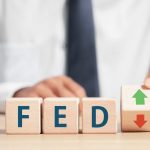Exchange-traded funds (ETFs) have exploded in popularity over the past two decades. Many retirees and investors moved money from mutual funds to ETFs for lower fees and flexibility. But ETFs aren’t foolproof, and mistakes can cost more than the mutual fund problems they were meant to solve. From hidden fees to poor timing, the risks are real. Here are eight ETF errors that drain portfolios.
1. Confusing Liquidity with Safety
ETFs trade like stocks, which makes them feel liquid. But just because you can buy or sell anytime doesn’t mean you should. Retirees sometimes panic-sell during downturns, erasing gains. Liquidity is only an advantage with discipline. Mistaking it for safety is costly.
2. Ignoring Expense Ratios on Specialty Funds
While many ETFs have low costs, niche or leveraged funds carry higher fees. Retirees chasing unique themes may pay more than mutual fund investors ever did. Expense ratios eat into returns year after year. Not all ETFs are cheap. Comparing costs is essential.
3. Overtrading for Short-Term Gains
Because ETFs are easy to trade, investors sometimes treat them like stocks. Frequent buying and selling racks up commissions and tax bills. Retirees especially suffer when turnover erodes returns. ETFs work best as long-term tools. Overtrading undermines their purpose.
4. Failing to Understand What’s Inside
Some ETFs sound broad but actually concentrate on a few sectors or companies. Retirees assuming diversification may hold hidden risk. Without checking the holdings, you may be more exposed than you think. Transparency exists, but it requires attention. Blind investing creates surprises.
5. Holding Leveraged or Inverse ETFs Long-Term
These funds are designed for short-term speculation, not retirement portfolios. Retirees holding them long-term face compounding losses. The products are marketed as advanced tools, but they often confuse casual investors. Leveraged ETFs are not buy-and-hold assets. Misuse is one of the costliest mistakes.
6. Overlapping ETFs in a Portfolio
Investors often buy multiple ETFs, believing they’re diversifying. But many funds track similar indexes, creating overlap. Retirees may unknowingly own the same companies across different funds. This duplication cancels out the benefits of diversification. A careful review prevents redundancy.
7. Ignoring Bid-Ask Spreads
Unlike mutual funds, ETFs trade at market prices, which means spreads matter. Thinly traded ETFs can have wide gaps between buy and sell prices. Retirees trading without attention to spreads may lose money instantly. Liquidity matters as much as cost. Execution costs add up quietly.
8. Forgetting Taxes on Dividends and Gains
ETFs may feel tax-efficient, but dividends and capital gains still create obligations. Retirees living on distributions must prepare for tax hits. Assuming ETFs are tax-free leads to disappointment. Smart planning avoids unnecessary surprises. Taxes follow every asset class.
The Takeaway on ETF Mistakes
ETFs offer flexibility and efficiency, but they aren’t foolproof. Retirees who avoid these mistakes preserve the benefits without repeating old mutual fund problems. Awareness and discipline keep ETFs working as intended. Simplicity doesn’t mean risk-free. The best investors know the details matter.
Have you ever made one of these ETF errors, or do you think ETFs are still the safest choice over mutual funds?
You May Also Like…
- How to Balance Saving and Investing for a Stronger Financial Future
- How to Start Investing with Limited Funds
- Warren Buffett and His Boring Investing Advice That Could Make You Rich
- How To Prepare For A Recession: Investing, Spending And Saving Tips To Protect Your Wealth
- 10 Dividend Investing Mistakes to Avoid
Read the full article here














